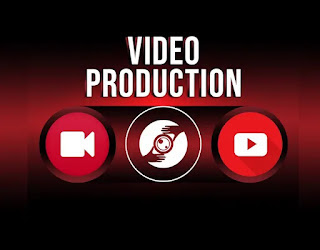The Art of Storytelling: Understanding the Role and Impact of Video Editors. In today's digital age, videos have become one of the most powerful and engaging forms of media. From short social media clips to full-length feature films, videos have the ability to captivate audiences and convey stories and messages like no other medium. Behind every visually stunning and compelling video lies the art and expertise of video editors. Video editors are skilled professionals responsible for crafting narratives, refining footage, and adding the finishing touches that make videos come to life. In this article, we delve into the world of video editors, exploring their roles, skills, impact, and the evolving landscape of video editing.

Roles and Responsibilities
Video editors are essential players in the post-production process, where raw footage is transformed into a polished and cohesive final product. Their roles and responsibilities vary depending on the type of project, but some common tasks include:
Footage Selection: Video editors carefully review all the recorded footage and select the best shots that align with the desired narrative and style.
Storytelling: Editors are storytellers who arrange selected footage to create a compelling and coherent narrative that resonates with the audience.
Video Editing: This involves cutting, trimming, and arranging video clips to maintain a smooth flow of the story. Video editors also add transitions, effects, and audio to enhance the visual experience.
Color Correction and Grading: Editors adjust the colors and tones of the footage to achieve a consistent and visually appealing look.
Audio Editing: Sound is a crucial aspect of video production, and editors work on improving audio quality, adding background music, sound effects, and ensuring synchronization.
Special Effects: For projects that require visual effects, video editors may collaborate with VFX artists to integrate computer-generated elements seamlessly.
Collaboration: Video editors often work closely with directors, producers, cinematographers, and other team members to ensure the video meets the project's objectives.
Skills and Qualifications
The art of video editing requires a unique blend of technical skills, creativity, and attention to detail. Some key skills and qualifications that successful video editors possess include:
Proficiency in Video Editing Software: Video editors should be well-versed in industry-standard editing software like Adobe Premiere Pro, Final Cut Pro, DaVinci Resolve, or Avid Media Composer.
Storytelling Abilities: A deep understanding of storytelling principles is essential to create engaging narratives that resonate with the audience.
Visual Sensibility: Video editors possess a keen eye for visual composition, pacing, and the ability to enhance the overall aesthetics of the video.
Technical Knowledge: Familiarity with video formats, codecs, resolutions, and other technical aspects is crucial to ensure video compatibility and optimal playback.
Time Management: Meeting tight deadlines is common in video editing, so strong time management skills are necessary to complete projects on time.
Communication: Effective communication skills are vital for collaborating with the creative team and understanding the project's vision and requirements.
Impact and Significance
The impact of video editors on the final product cannot be overstated. Their work influences how stories are conveyed, emotions are evoked, and messages are communicated to the audience. The importance of video editing is evident in various domains:
Film and Television: In the world of film and television, video editors play a pivotal role in shaping the narrative, pacing, and emotional impact of the content.
Marketing and Advertising: Video editors create captivating commercials and promotional videos that leave a lasting impression on consumers and drive engagement.
Social Media and Online Content: Short-form videos dominate social media platforms, and video editors ensure that content is concise, attention-grabbing, and shareable.
Education and Training: Video editors contribute to educational and training videos that make complex concepts more accessible and engaging for learners.
Documentaries: In documentary filmmaking, video editors compile footage to present a compelling and thought-provoking account of real-life events and issues.
Evolving Landscape of Video Editing
Advancements in technology and changes in audience preferences have significantly influenced the landscape of video editing. Video editors must adapt to these changes to stay relevant and meet the demands of modern audiences.
Real-Time Editing: Some video editing software now offers real-time editing capabilities, allowing editors to view changes instantly without rendering.
360-Degree Videos: With the rise of virtual reality (VR) and 360-degree videos, video editors face new challenges in creating immersive and interactive content.
Mobile Editing: The ability to edit videos on mobile devices has become more accessible, enabling quick edits and on-the-go content creation.
Artificial Intelligence: AI-powered tools are emerging, automating certain aspects of video editing, such as scene detection and automatic color grading.
Conclusion
Video editors are the unsung heroes behind the scenes, diligently working to bring stories and messages to life through the art of video editing. Their technical expertise, creativity, and storytelling abilities make them indispensable in the world of media and entertainment. From films and commercials to online content and educational videos, video editors play a crucial role in shaping how audiences perceive and engage with video content. As technology continues to advance, video editing will continue to evolve, presenting new possibilities and challenges for video editors. Their passion and dedication to their craft ensure that the art of storytelling through video will continue to captivate and inspire audiences for years to come.

0 Comments